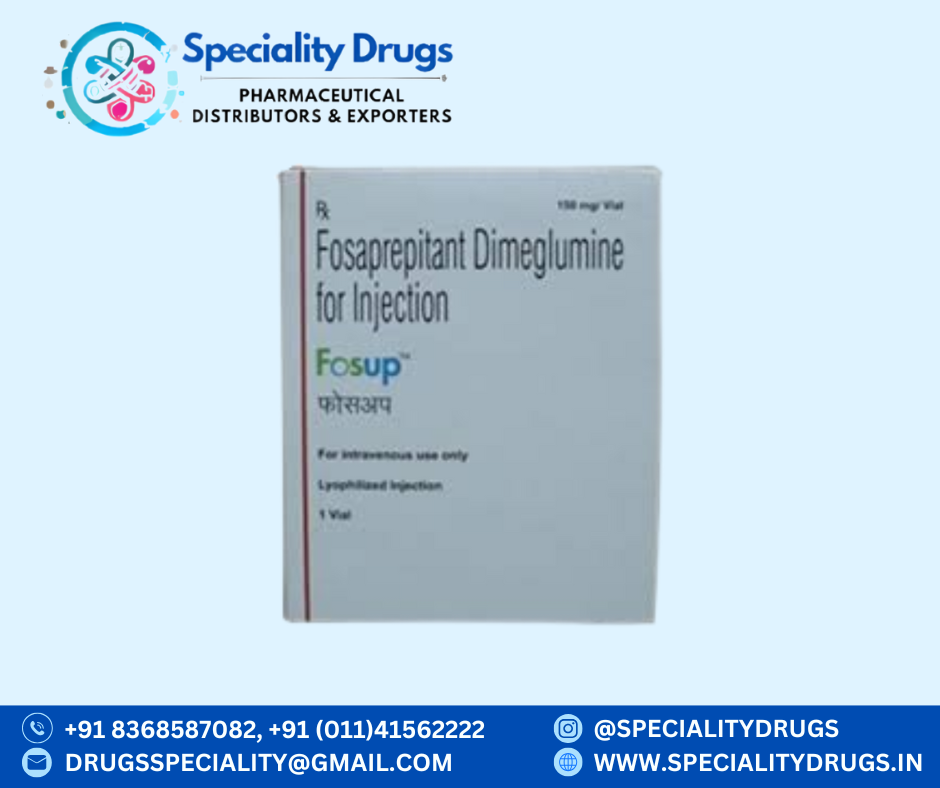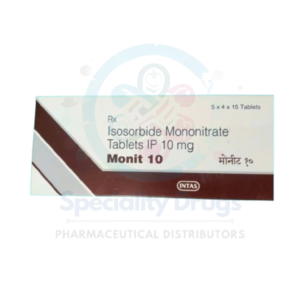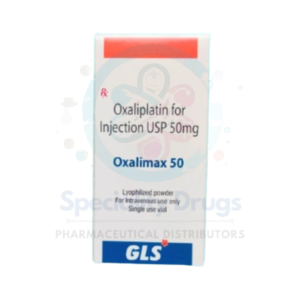What is FOSUP 150MG?
FOSUP 150MG is a chemotherapy antiemetic containing Fosaprepitant Dimeglumine. It is used to prevent nausea and vomiting caused by highly emetogenic chemotherapy, ensuring patient comfort during treatment.
What is the Use of FOSUP 150MG?
- Prevention of acute and delayed chemotherapy-induced nausea and vomiting (CINV)
- Supports patients undergoing highly emetogenic chemotherapy
- Often used in combination with other antiemetics like 5-HT3 antagonists and corticosteroids
Benefits of FOSUP 150MG
- Reduces nausea, vomiting, and associated discomfort
- Improves quality of life during chemotherapy
- Helps maintain hydration and nutrition
- Administered prophylactically for effective prevention
Side Effects of FOSUP 150MG
Common side effects:
- Headache
- Fatigue
- Constipation
- Injection site reactions
Serious side effects (rare):
- Allergic reactions (rash, swelling, difficulty breathing)
- Severe dizziness or hypotension
Important Notes
- Administration: Given intravenously under medical supervision.
- Precautions: Inform your doctor about other medications or health conditions.
- Storage: Store in a cool, dry place, away from light.
- Presentation: 150 mg vial for intravenous injection.
1. What is FOSUP 150MG used for?
It is used to prevent nausea and vomiting caused by chemotherapy.
2. What is the active ingredient in FOSUP 150MG?
The active ingredient is Fosaprepitant Dimeglumine.
3. How is FOSUP 150MG administered?
It is given intravenously by a healthcare professional.
4. Can FOSUP 150MG be taken at home?
No, it must be administered in a hospital or clinic setting.
5. Can it be combined with other antiemetics?
Yes, it is often used with 5-HT3 antagonists and corticosteroids for better effect.
6. When should it be given relative to chemotherapy?
Typically 30 minutes to 1 hour before chemotherapy.
7. What are common side effects?
Headache, fatigue, constipation, and injection site reactions.
8. What serious side effects should be monitored?
Allergic reactions, severe dizziness, or hypotension.
9. Can it be used in children or elderly patients?
Yes, but dosing may vary; use under medical supervision.
10. Does it affect the effectiveness of chemotherapy?
No, it does not reduce chemotherapy effectiveness.
11. How long does it prevent nausea and vomiting?
It helps prevent both acute and delayed CINV, usually up to 48 hours post-chemotherapy.
12. Can FOSUP 150MG be used for nausea from other causes?
No, it is specifically for chemotherapy-induced nausea.
13. How should it be stored?
Store in a cool, dry place, protected from light.
14. Is follow-up required after administration?
Yes, patients should be monitored for side effects and effectiveness.
15. Can it be used prophylactically?
Yes, it is often given before chemotherapy to prevent nausea and vomiting.






Reviews
There are no reviews yet.